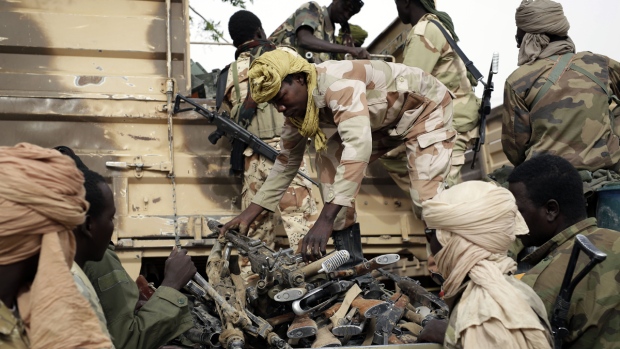IS group announces new Boko Haram leader
Thu 04 Aug 2016, 11:39:40

Nigeria’s Boko Haram Islamic extremists have a new leader who is threatening to bomb churches and kill Christians while ending attacks on mosques and markets used by ordinary Muslims, according to an interview published on Wednesday by the Islamic State group.
The newspaper identified Abu Musab al-Barnawi as the new “wali,” or governor, of its so-called West Africa Province. The “wali” title was previously used to describe long-time Boko Haram leader Abubakar Shekau. The report did not say what Shekau’s current status was, although there have been rumours for weeks that he had been replaced.
The interview with al-Barnawi indicates a major shift in strategy for the Nigerian extremists, who have killed many more Muslims than Christians in attacks in mosques with suicide bombers and gunmen.
There have also been attacks on crowded marketplaces in predominantly Muslim areas and the killings and kidnappings of schoolchildren. The targeting of students accounts for its nickname Boko Haram, which means Western education is sinful or forbidden.
“They strongly seek to Christianize the society. ... They exploit the condition of those who are displaced under the raging war, providing them with food and shelter and then Christianizing their children,” SITE Intelligence quotes the new leader as saying.
Al-Barnawi says the militants will respond to that threat by “booby-trapping and blowing up every church that we are able to reach, and killing all of those [Christians] who we find from the citizens of the cross.” Wednesday’s announcement indicates a coup by Boko Haram breakaway group Ansaru against Shekau, and follows a trend of extremist Islamic groups moving away from al-Qaeda to the Islamic State, analyst Jacob
Zenn said.
Zenn said.
Ansaru broke away from Boko Haram because it disagrees with the indiscriminate killing of civilians, especially Muslims. Al-Barnawi is the pseudonym of a Nigerian journalist allied with Ansaru, which is known for kidnapping foreigners, according to Zenn.
In March 2015, Shekau switched allegiance from al-Qaeda and declared that Boko Haram be known as the Islamic State’s West Africa Province. At the time, Boko Haram was the most powerful military force in northeast Nigeria, controlling a huge area and was better equipped and motivated than Nigerian forces.
Under Shekau, the seven-year insurgency spread to neighbouring countries, killed more than 20,000 people and drove more than 2.2 million from their homes, and created what aid workers are calling a catastrophic humanitarian emergency with children dying of starvation daily.
Boko Haram last week ambushed a humanitarian convoy, killing three civilians including a U.N. employee and causing the suspension of U.N. aid to newly liberated but still dangerous areas of Nigeria’s northeast.
Since last year, Nigeria has a new leader, President Muhammadu Buhari, a former military dictator who has better armed and motivated security forces. He is also fighting corruption that diverted $2.1 billion that was meant to buy weapons to fight the Islamic uprising, and is cooperating with a multinational force that has the extremists on the run.
In the interview, al-Barnawi said that under his leadership the militants will work to seize back territory. He said that increasing numbers of youth are joining the cause, though Nigeria’s military reports that hundreds of its fighters have surrendered as aerial bombardments and ground assaults cut supply routes.
No Comments For This Post, Be first to write a Comment.
Most viewed from International
Most viewed from World
AIMIM News
Latest Urdu News
Most Viewed
May 26, 2020
Do you think Canada-India relations will improve under New PM Mark Carney?
Latest Videos View All
Like Us
Home
About Us
Advertise With Us
All Polls
Epaper Archives
Privacy Policy
Contact Us
Download Etemaad App
© 2025 Etemaad Daily News, All Rights Reserved.



.jpg)






.jpg)
.jpg)








.jpg)
.jpg)
.jpg)
.jpg)
.jpg)

















